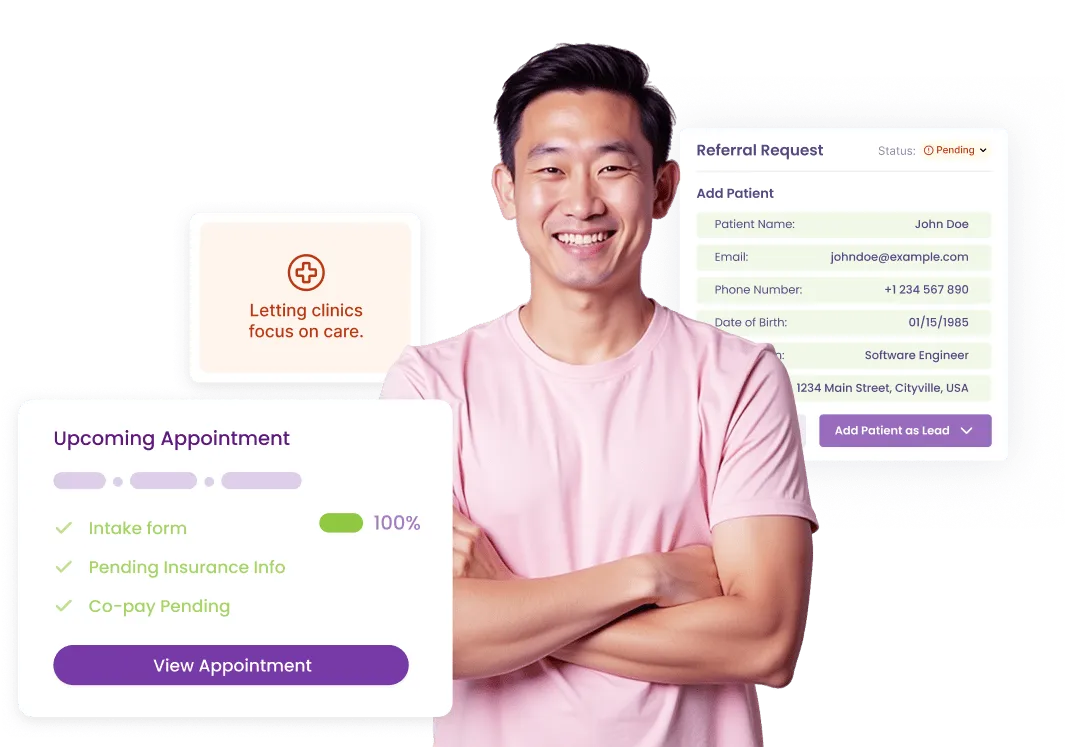H2019 – Substance Use Counseling / Behavioral Health Service
CPT code H2019 represents a distinct mental or behavioral health service, including evaluation, therapy, or care coordination.
What is CPT
H2019
?
H2019 is a specific code utilized in the realm of substance use services, particularly for counseling interventions aimed at supporting individuals in recovery. This section provides an overview of the code's clinical application, documentation requirements, and payer considerations. It is essential for providers to ensure that clinical notes are congruent with evidence-based practices, detailing treatment goals, the specific interventions employed, and measurable outcomes achieved. For time-based billing under this code, it is critical to accurately document both start and stop times to substantiate the billed duration, thereby ensuring compliance and reimbursement efficiency.

Documentation Tips
When billing for psychotherapy services under H2019, meticulous documentation is vital. Begin by recording the start and stop times for the session, ensuring that the total duration aligns with the billed amount. Clearly outline the therapeutic modality employed, whether it be cognitive-behavioral therapy (CBT), motivational interviewing, or another evidence-based approach. Additionally, document the clinical focus of the session, the patient’s response to the interventions, and a detailed follow-up plan. For any scored assessment instruments utilized during the session, maintain copies of the completed tools for reference. In the case of telehealth services, it is imperative to document the patient's consent for treatment and the specific platform used to conduct the session. Adopting a consistent structure, such as SOAP (Subjective, Objective, Assessment, Plan) or DAP (Data, Assessment, Plan), can enhance audit readiness and facilitate better communication among the care team.

At a Glance
- Service Type: Substance Use Treatment
- Use Case: Counseling and Support Services
- Typical Setting: Outpatient clinic, telehealth sessions (subject to payer policies)
- Billing Unit: Per session or per instrument (varies depending on the specific service rendered)
- Common Pairings: 90791 (Psychiatric Diagnostic Evaluation), 96127 (Brief Emotional/Behavioral Assessment), various psychotherapy codes
Billing Examples
Consider a scenario where a clinician provides a 60-minute group counseling session focusing on relapse prevention strategies for patients recovering from substance use disorders. The clinician documents the specific triggers discussed, coping strategies shared among participants, and updates to each patient's individualized treatment plan. It is important to note that while group therapy may be billed under H2019, individual counseling sessions are billed separately using designated HCPCS/CPT codes, as per payer guidelines. Additionally, a case may involve a clinician conducting a one-on-one session to address a patient's anxiety related to their recovery process. In both cases, the detailed documentation will reflect the therapeutic techniques applied and the patient’s progress towards their treatment goals.
Compliance Guidelines
- Before billing, confirm the payer’s coverage and authorization requirements to avoid claim rejections.
- Document medical necessity comprehensively, ensuring that services are clearly linked to appropriate ICD-10 diagnoses.
- Utilize the correct modifiers, such as modifier 95 for telehealth services, to comply with payer specifications.
- Avoid upcoding; instead, select the code that accurately reflects the documented time spent and the service level provided.
- Conduct regular audits of billing practices and documentation to minimize claim denials and enhance the overall quality of patient records.
Common ICD-10 Codes
Helpful links for mental health billing and documentation
- F10.20
- F11.21
- F19.20
- F10.10
- F12.20
Additional Resources
Helpful links for mental health billing and documentation
Related CPT Codes
Helpful links for mental health billing and documentation
Got questions? We’ve got answers.
Need more help? Reach out to us.
Q1: What specific services does this code cover?
A: H2019 is applicable when the clinical activity corresponds with the code's definition for counseling services. Providers must ensure that their documentation accurately supports the services billed under this code.
Q2: Is it permissible to bill this code for telehealth services?
A: Yes, many payers authorize telehealth billing for H2019, provided that the service is delivered synchronously and that proper modifiers and patient consent documentation are maintained. Always verify with the payer's policy for specific requirements.
Q3: What type of documentation do payers typically require?
A: Payers generally request documentation that includes time spent on the service, the therapeutic techniques or assessment instruments used, the patient’s response during the session, and a clear linkage to an appropriate ICD-10 diagnosis.
Q4: Can H2019 be billed in conjunction with other CPT codes?
A: It is allowable to bill H2019 alongside other services, provided that distinct time and rationale for each service are documented. Utilize add-on codes or adhere to evaluation and management (E/M) separation rules where applicable.
Q5: What are common reasons for claim denials related to this code?
A: Common denial reasons include missing or incomplete time records, insufficient documentation of medical necessity, improper modifier usage, or billing beyond the frequency limits set by the payer.

